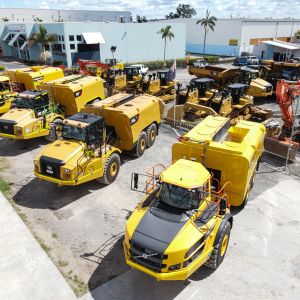Mirror, mirror, on the wall… It’s fascinating the associations we all make when we rightly or wrongly categorise someone based on an object they own or a viewpoint that they have. For instance, we tend to stereotype people based on what car they drive. Drive a Ferrari, you’re a well off show off, but perhaps “lacking” in other areas of life. Drive a Prius, and you want to be perceived as “green”, but the truth is that over the life cycle of the car (considering battery replacements etc), it’s a purchase that doesn’t stack up financially and not environmentally either, reflecting instead on the buyer as “green” in terms of investment nous.
In the business world, we tend to forget that the business reflects on the people in our business, but even more so the other way around. A guy in our neighbourhood worked for Roadside Assistance for RACQ, and everyone perceived him as “handy”. A while back, he changed jobs. I was in our yard using a “Bunnings” pump sprayer to kills some weeds in the driveway, when I called out to him to say hello. He walked towards me, saw the spray bottle, and asked “Is that pressurised?”. “I guess so”, was my reply, to which he took a few steps backwards and left. Obviously I hadn’t conducted a risk assessment on my container with 99% water, and the “Handy” reflection of him has been replaced with something else.
Human Resources experts say that the Culture and Philosophy of a business is one of the main attributes that new candidates use to evaluate a potential employer. If the values don’t reflect their belief system, they’ll look elsewhere. In my own background, I once joined an Industry leader, only to leave a year later because the industry relied on basically threatening customers to comply with legal standards. Kind of like ambulance chasing, except it’s hard to stand on a high moral ground when the whole industry you work in doesn’t even come close to meeting the legislative requirements themselves…
Whilst candidates can “easily” move around, it is harder for businesses to address any value mis-alignment. The time to check this is during the recruitment and reference checking stage, and whatever your thoughts on Social Media, how a candidate portraits themselves on Facebook before they are employed is most likely an indicator of how they’ll act as an Ambassador for your company.
On a recent 2 hour flight, I happened to sit behind 3 persons wearing prominently coloured shirts with logo’s of their employer. Flights are one of the few places where I can retreat into a sanctuary of catching up on reading, but it was impossible not to overhear their conversation. I’d always seen their company as a successful Entrepreneurial market leader, selling household plastic goods at price multiples of other providers for many decades. The product commands a premium price because it has stood the test of time for professionalism, reliability and innovation. My views have changed after hearing nothing but petty complaints about having to train others, sales targets, and back stabbing of managers and colleagues alike, culminating in one of them saying he was going to take a sickie the next day. How can or do you manage what employees say about your business?
Some businesses “control” communications through things like call centres. A large Stock Broker (which is part of a major Bank) happened to change the account that all our Share Dividends were paid to so it went into a cash account with their own bank instead of my preferred bank. Ooops, a mistake, guess it could happen to anything “electronic”. Despite the change being illegal, the call centre which was “controlling” communication about the issue wasn’t very helpful, but eventually we managed to change it back by asking me to fill in some forms. The cynical side of me thought that the “glitch” may have been an example of why the bank pays its’ management significant bonuses. After all, in a world of competing for Deposits, the change had my money going into an account with 0-0.25% interest rate (instead of the still measly 4%), and surely many customers either wouldn’t notice or couldn’t be bothered dealing with a call centre to have it resolved. Hopefully the poor sods in the call centre get a share in the bonuses. Maybe that’s how geniuses keep our banks so profitable?
Speaking of Genius, the idea of putting a Nuclear Power station in the Mary Valley would be one of the few environmental strategies that should get support from nearly every opinion group. The Government has already bought all the land for the failed damn project and there are no takers for buying it back. The location is not known for natural disasters. We have Uranium already being mined in our country and sent overseas for this purpose. Nuclear Energy is a low cost source of reliable base power, and it’s one of the cleanest sources of energy known (the “smoke” stacks that look impressive on anti-nuclear materials is water vapour), and as it produces 1/30th of the Carbon of Coal, the Carbon Tax would be significantly reduced, so it’d be one of very few ways we could make substantial improvements to our environment. Our Construction industry would be kick started with a large scale project, and we’d increase long term employment in a region that needs it. Provided we can have sensible and factually based debate, we could finally join all other major industrial and first world nations in how we produce power, so it seems like there would be winners all around. The No-sayers will probably point to some glowing reflection with a Japanese reactor built at sea level on a fault line, or a Ukrainian one where maintenance wasn’t being carried out, a bit like an episode of “The Simpsons”. Another reflection would be that the USA has over 100 Nuclear plants, 77% of France’s Power supply is Nuclear, and it’s a common source of reliable power in 31 countries in the Industrialised world, with a further 62 plants currently being built – none of which we ever hear of as having negative impacts. Not everyone believes we should have Nuclear Power in Australia, but we’ve all had enough of “just say no” without hearing credible alternative suggestions. We certainly need bigger and better thinking on long term investment in Australian infrastructure (High speed rail along the East Coast is another), and now would be the time to do it.
Enough reflections. As always, onwards and upwards!
Fred Carlsson
General Manager



